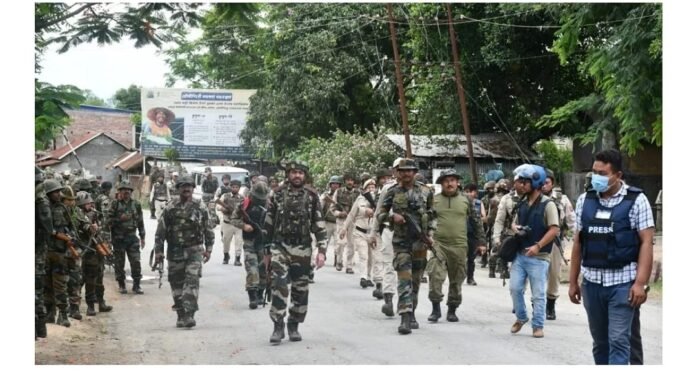The state of Manipur, located in northeastern India, continues to grapple with ethnic clashes and communal tensions, prompting the formation of a State Level Peace Committee by the central government. However, this committee’s composition has sparked dissatisfaction and discontent among various ethnic groups. The need for an inclusive representation of all communities is crucial to foster a harmonious environment and facilitate a genuine peace-making process in the troubled state.
Background: Manipur, known for its rich ethnic diversity encompassing communities like the Meiteis, Nagas, Kukis, and others, has a complex history of inter-ethnic conflicts rooted in issues such as land disputes, identity concerns, and political representation. To address these challenges, peace committees have been established, acting as platforms for dialogue, conflict resolution, and promoting understanding among different ethnic groups.
The Composition Conundrum: However, the current composition of the State Level Peace Committee has raised concerns among several ethnic communities. The primary issue revolves around the perceived dominance of the Meitei community, which holds majority status in Manipur, in the committee’s makeup. This has left other communities, such as the Nagas and Kukis, feeling marginalized and apprehensive about the representation of their interests and concerns.
Seeking Inclusivity: The discontent among ethnic groups highlights the need for greater inclusivity and equal representation within the State Level Peace Committee. By ensuring diverse participation, the committee can gain credibility and become a more effective platform for fostering peace and understanding. All ethnic groups must feel that their voices are heard and that their grievances are addressed in a fair and impartial manner.
Moving Towards Solutions: Recognizing the importance of addressing these concerns, both the government and civil society organizations have initiated efforts to promote inclusivity within the peace committee. It is imperative to engage in sustained dialogue and constructive engagement with all stakeholders, ensuring that the composition reflects the diverse fabric of Manipur’s society.
Emphasizing Trust and Collaboration: To build trust and foster collaboration, it is crucial for the committee to adopt transparent and participatory processes. This includes conducting open consultations, engaging with local communities, and actively involving representatives from all ethnic groups in decision-making processes. By doing so, the committee can work towards finding sustainable solutions that address the underlying causes of ethnic conflicts.
The discontent over the composition of the State Level Peace Committee in Manipur reflects the complex dynamics and historical tensions prevalent in the state. The need for inclusivity, equal representation, and fair participation of all ethnic communities cannot be undermined. By addressing these concerns and fostering an environment of trust and collaboration, the committee can effectively contribute to the peace-making process in Manipur and pave the way for a harmonious coexistence among its diverse ethnic groups.




